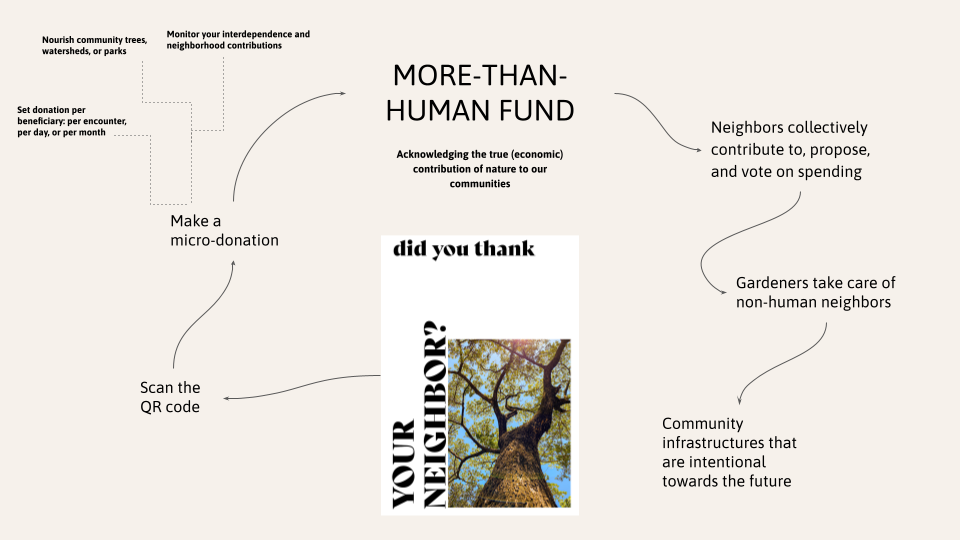
“Neighbors I don’t know
My neighbors I don’t know
The colors and flavors
Of life that surrounds me
Bacterial floral fungal or animal
It’s criminal my interest
Is minimal”
Our economies are grounded in a cultural paradigm filled with juxtapositions that influence and limit how we see our relationships with plants, animals, landscapes, generations, and each other. Culture/nature, reason/nature, production/ reproduction, self/other, past/present, are just a few examples of such dualisms that misleadingly suggest that we are not part of a complex, interdependent ecosystem. We have created narratives that portray nature as belonging to a radically different order, as something inferior and therefore subject to domination and exploitation for profit maximization. As philosopher Bruno Latour, as well as countless indigenous leaders before him, have urged: we need to move towards post-human exceptionalism and acknowledge that we are in constant interaction with the natural world around us in order to move towards more sustainable life patterns and economies. (1)(2)
What if a new narrative of multi-species community guided our economies?
When two people meet in passing in southern Uganda, they do not say hello, but gyebale — thank you for the work you do. This informal greeting expresses appreciation for the contributions the other person makes towards the everyday effort of living well together, no matter how large or small a person’s role may be. This explicit recognition and appreciation of interdependence, and its potential to extend this to all members of our community and ecosystem, formed the basis for the MORE-THAN-HUMAN public campaign and neighborhood fund.
The public campaign creates a new narrative around nature as community members, as neighbors. By reclaiming public advertising spaces, the campaign seeks to reverse the dominance of consumerism in the public space and reclaim it as a place of community, connection, and care. The MORE-THAN-HUMAN posters encourage passerby to scan the QR code and make a micro-donation (from as little as 1 cent) as a thank you to their non-human neighbors. These direct transfers of small donations run through the Interledger Protocol using blockchain technology and are directed to a Neighborhood Fund. This fund is managed collectively by the community and is used to protect its natural assets — be it a local tree, watershed, or park — to the benefit of all neighbors (human and non-human) and future generations.
(1) Bruno Latour, Facing Gaia: Eight Lectures on the New Climate Regime (Cambridge: Polity Press, 2017)
(2) Eija Ranta, “Toward human/non-human conviviality: Buen Vivir as a transformative alternative to capitalist coloniality,” in The Routledge Handbook of Transformative Global Studies, edited by S.A. Hamed Hosseini, et al. (London and New York: Routledge, 2020), 419-430.



